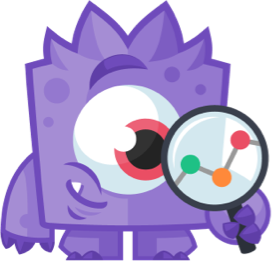Natural Language Processing (NLP) within Artificial Intelligence Operating Systems (AIOS) is evolving rapidly, revolutionizing how businesses, governments, and individuals interact with technology. AIOS refers to the platforms that integrate AI capabilities with a framework for computer operating systems to enhance user experience, enabling seamless communication and interaction through natural language. This article delves into the latest trends and applications of NLP in AIOS, particularly focusing on its implications for business intelligence and the integral role of zero-trust security.
In recent years, NLP technologies have gained significant attention for their ability to process and analyze human language at an unprecedented scale. NLP employs complex algorithms and deep learning models to refine language comprehension, enabling businesses to extract meaningful insights from vast amounts of unstructured data, including emails, social media posts, customer feedback, and more. This process is essential for businesses aiming to enhance customer relationships and gain a competitive advantage.
AIOS solutions harnessing NLP capabilities are already making substantial impacts across different industries. For instance, customer support chatbots are leveraging NLP to provide personalized assistance in real-time, significantly reducing response times and improving customer satisfaction. Tools such as Google Dialogflow or IBM Watson Assistant enable businesses to create intelligent virtual agents capable of understanding and processing user inquiries, leading to enhanced engagement and productivity.
Moreover, NLP also plays a vital role in sentiment analysis, allowing businesses to gauge customer emotional responses to products or services. By utilizing NLP-driven AIOS, organizations can monitor social media activity and analyze customer reviews to gather insights about their brand’s reputation and consumer sentiment. Such analytics empower companies to make informed strategic decisions, optimize marketing efforts, and foster stronger relationships with their target audience.
As the integration of natural language processing in AIOS matures, new developments in the field continue to emerge. Innovations such as generative pre-trained transformers (GPT) and various other transformer-based models have significantly advanced the capabilities of NLP systems. These technologies can comprehend context better, producing more accurate results while minimizing misunderstandings in various languages and dialects. Consequently, businesses leveraging these advancements can reduce language barriers and enhance collaboration in diverse work environments.
Despite the numerous advantages that NLP brings to AIOS, it is essential to acknowledge potential pitfalls, particularly regarding data privacy and security. Organizations must remain vigilant while utilizing AIOS solutions with NLP capabilities to ensure they comply with regulations like GDPR and CCPA. That’s where the integration of zero-trust security principles becomes crucial.
**Zero-Trust Security in AIOS: A Necessary Paradigm Shift**
As AIOS solutions become integral to business operations, non-negotiable security measures are required to safeguard these systems. The zero-trust security model, which dictates that no user, device, or application should be trusted by default, is essential in this framework. By assuming that threats could be both external and internal, businesses can mitigate potential risks associated with deploying AI technologies.
Implementing a zero-trust approach entails verifying every user and device trying to access AIOS resources, using techniques such as continuous authentication and role-based access controls. This approach minimizes the risk of data breaches and ensures that sensitive information, especially user data processed through NLP algorithms, remains protected.
Real-world examples of businesses adopting zero-trust security in AIOS are becoming increasingly prevalent. Firms such as Microsoft and Google have integrated zero-trust frameworks into their service offerings, ensuring that enterprise users benefit from enhanced security measures, especially when utilizing AI-driven solutions. By implementing these frameworks, organizations not only protect their data but also maintain customer trust, a critical element in today’s business landscape.
The marriage of natural language processing, AIOS, and zero-trust security equips businesses with an innovative, secure, and effective means to leverage artificial intelligence technologies to enhance data-driven decision-making. Businesses embracing this trifecta can experience enriched customer interaction, data insights, and robust security protocols.
**AIOS for Business Intelligence: Harnessing Data for Competitive Edge**
In the highly competitive business environment, data-driven decision-making is at the core of successful strategies. AIOS platforms equipped with AI and analytics capabilities empower organizations to capitalize on the wealth of data at their disposal. By integrating NLP insights into business intelligence frameworks, companies can transform raw data into actionable intelligence.
With AIOS enabling advanced data visualizations and real-time analytics, businesses can monitor key performance indicators (KPIs) and identify trends more efficiently. The integration of NLP can further enhance this process by providing textual insights alongside numerical data. For instance, consider a retail business utilizing AIOS for business intelligence. Through NLP techniques, the system can analyze customer reviews and feedback for better insights into market trends and consumer preferences while concurrently assessing sales data to paint an overall picture of performance.
Moreover, AIOS can automate report generation, allowing business analysts and decision-makers to focus on strategic tasks rather than be bogged down by routine reporting duties. By utilizing AI-driven personal assistants within AIOS, users can query data using natural language; a significant development that democratizes access to data insights. This empowerment of users within organizations fosters a data-centric culture, encouraging a more agile approach to strategy formation and execution.
In addition, by employing robust NLP-driven analytics, organizations can identify emerging market opportunities and pivot quickly in response to changing consumer behaviors. Companies harnessing these insights can enhance their offerings and even predict future trends, providing them with an upper hand in the marketplace.
However, as businesses increasingly rely on data for strategic decision-making, they must simultaneously prioritize data security and compliance, particularly within AIOS infrastructure. The implementation of zero-trust security protocols plays an essential role in safeguarding sensitive business intelligence data while preserving the integrity of AI-driven solutions.
Amidst these growing opportunities, organizations must remain cautious about potential challenges. Ethical considerations surrounding data usage, interpretation, and decision-making transparency must be addressed to avoid biases and ensure that AIOS remains an unbiased facilitator of insights.
**Conclusion: The Path Ahead for AIOS, NLP, and Security Integration**
The intertwined trends of natural language processing, AIOS for business intelligence, and zero-trust security represent the evolution of how organizations leverage artificial intelligence technologies. By embracing these advances, businesses can unlock newfound capabilities for operational efficiency and customer engagement while maintaining high security standards.
Ultimately, as AIOS continues to evolve, organizations willing to adapt and embrace these trends will be poised to gain a competitive edge in the dynamic landscape. The future of business intelligence undeniably hinges on the successful integration of these advanced technologies, paving the way for an ambitious new era of data-driven decision-making, driven by natural language understanding and governed by secure systems.
The journey ahead is undoubtedly exciting as organizations explore the potential of AIOS for evolving their business landscapes while promoting robust security frameworks to protect their assets. Resourcefully leveraging NLP capabilities will not only ensure enhanced interactions but also fortify businesses’ resilience against ever-evolving threats in a digitally transformed world.
**Sources:**
1. *Baker, S. (2022). The Intersection of AI and Business Intelligence: Trends and Insights. AI Business Weekly.*
2. *Johnson, M. (2023). Navigating Zero-Trust Frameworks in AI Deployments. Cybersecurity Journal.*
3. *Smith, A. (2023). The Evolution of Natural Language Processing: Opportunities and Challenges. Journal of AI Research.*
4. *Tech Monitor. (2023). How AI Operating Systems are Redefining Business Intelligence.*
5. *Sullivan, R. (2023). Securing AI Systems: The Growing Importance of Zero Trust. Computer Security Quarterly.*


























